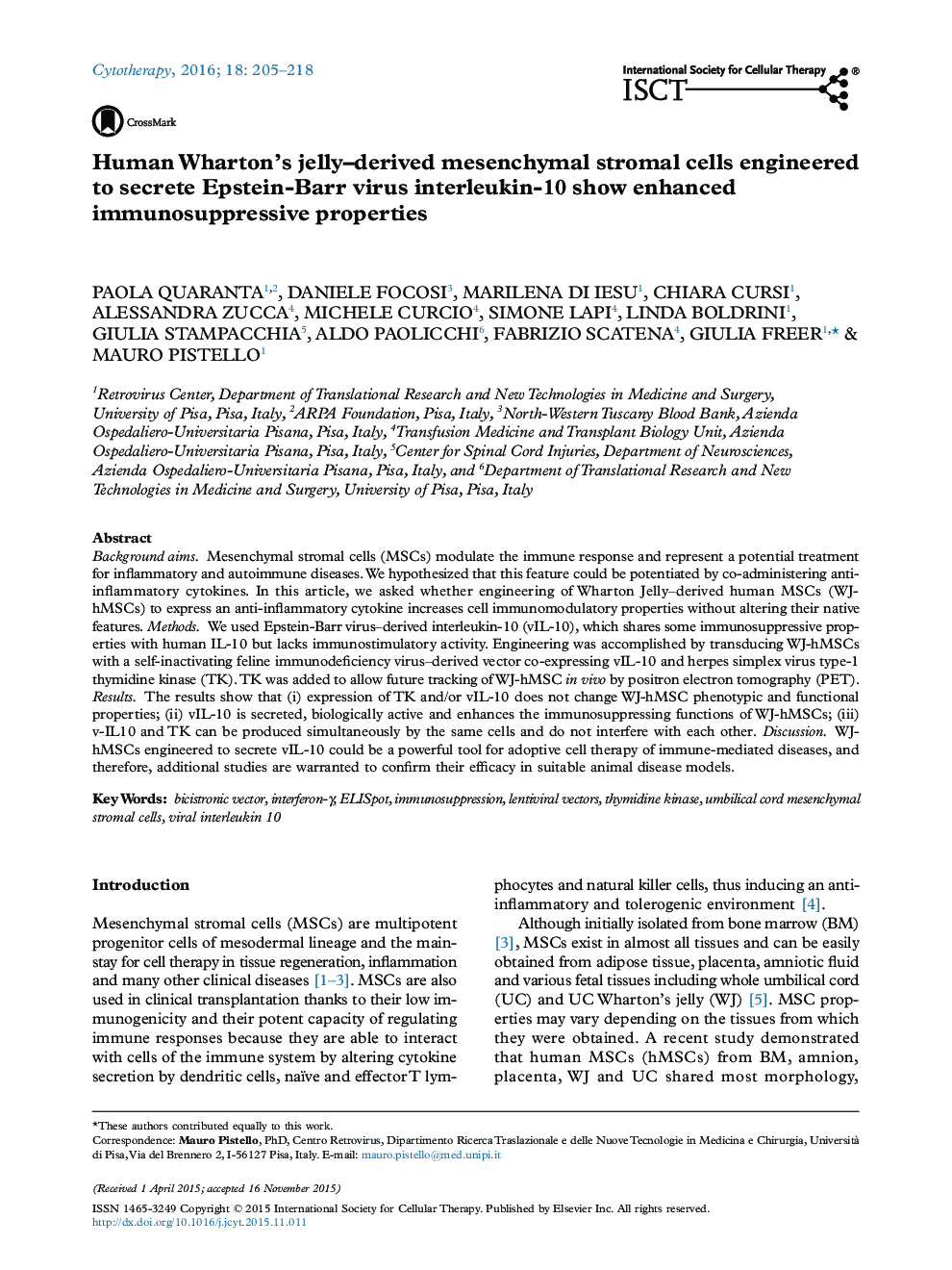| کد مقاله | کد نشریه | سال انتشار | مقاله انگلیسی | نسخه تمام متن |
|---|---|---|---|---|
| 2171150 | 1093468 | 2016 | 14 صفحه PDF | دانلود رایگان |
Background aimsMesenchymal stromal cells (MSCs) modulate the immune response and represent a potential treatment for inflammatory and autoimmune diseases. We hypothesized that this feature could be potentiated by co-administering anti-inflammatory cytokines. In this article, we asked whether engineering of Wharton Jelly–derived human MSCs (WJ-hMSCs) to express an anti-inflammatory cytokine increases cell immunomodulatory properties without altering their native features.MethodsWe used Epstein-Barr virus–derived interleukin-10 (vIL-10), which shares some immunosuppressive properties with human IL-10 but lacks immunostimulatory activity. Engineering was accomplished by transducing WJ-hMSCs with a self-inactivating feline immunodeficiency virus–derived vector co-expressing vIL-10 and herpes simplex virus type-1 thymidine kinase (TK). TK was added to allow future tracking of WJ-hMSC in vivo by positron electron tomography (PET).ResultsThe results show that (i) expression of TK and/or vIL-10 does not change WJ-hMSC phenotypic and functional properties; (ii) vIL-10 is secreted, biologically active and enhances the immunosuppressing functions of WJ-hMSCs; (iii) v-IL10 and TK can be produced simultaneously by the same cells and do not interfere with each other.DiscussionWJ-hMSCs engineered to secrete vIL-10 could be a powerful tool for adoptive cell therapy of immune-mediated diseases, and therefore, additional studies are warranted to confirm their efficacy in suitable animal disease models.
Journal: Cytotherapy - Volume 18, Issue 2, February 2016, Pages 205–218
